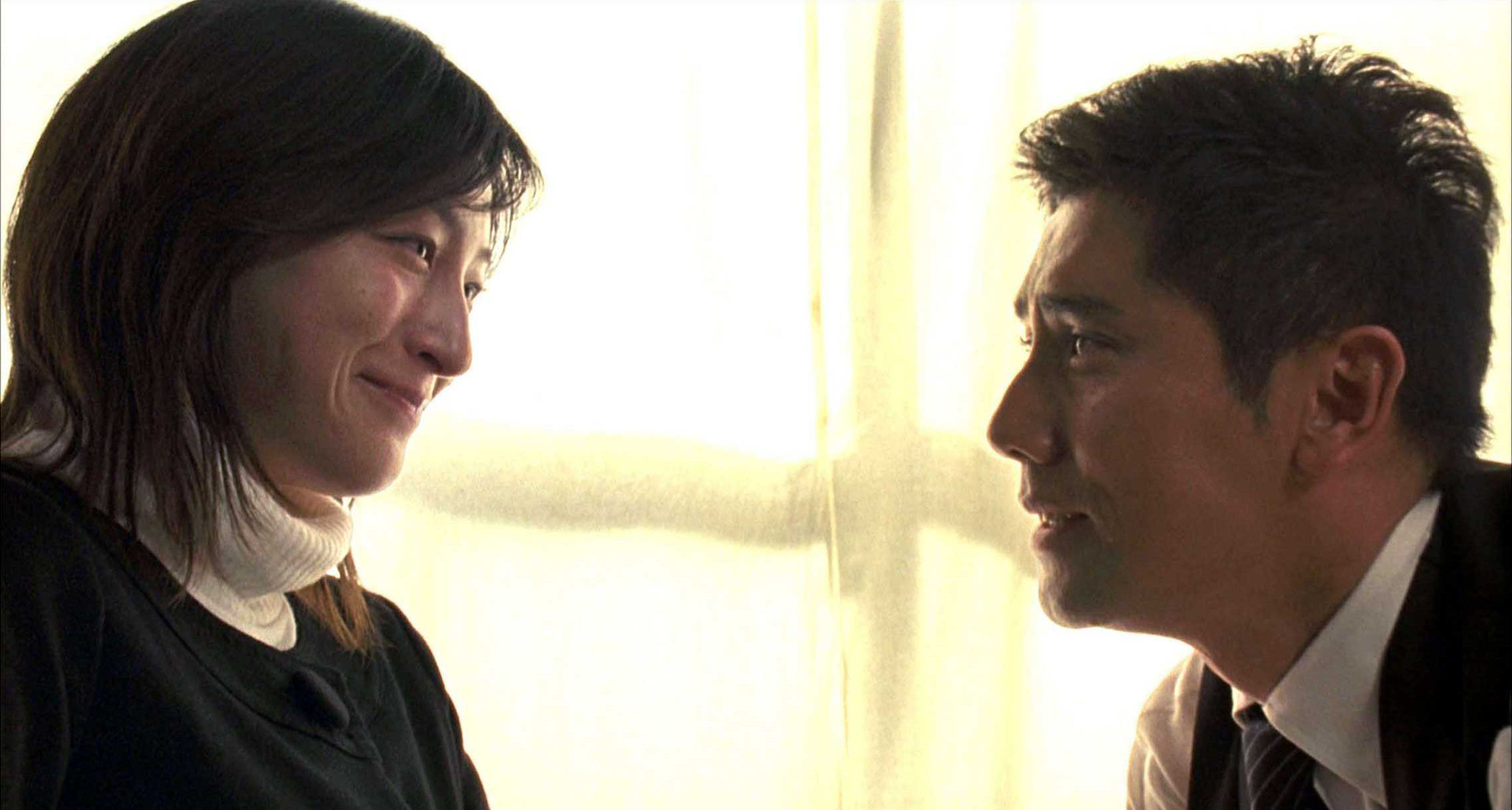Death is for the living and not for the dead so much.
That observation from the mourner of a dead dog in Errol Morris’ “Gates of Heaven” strikes me as simple but profound. It is the insight inspiring “Departures,” the lovely Japanese movie that won this year’s Oscar for best foreign film.
The story involves a young man who apprentices to the trade of “encoffinment,” the preparation of corpses before their cremation. As nearly as I can recall, there is no discussion of an afterlife. It is all about the living. There is an elaborate, tender ceremony carried out before the family and friends of the deceased, with an elegance and care that is rather fascinating.
The hero is a man who feels he is owed a death. The father of Daigo (Masahiro Motoki) walked out on his mother when the boy was 6 years old, and ever since Daigo has hated him for that abandonment. Now about 30, Daigo is a cellist in a small classical orchestra that goes broke. He and Mika (Ryoko Hirosue), his wife, decide to move back to a town in the north of Japan and live in his childhood home, willed to him by his recently departed mother. He finds no work. He answers a want ad for “departures,” which he thinks perhaps is from a travel agency.
The company serves clients making their final trip. Daigo is shocked to discover what the owner (Tsutomu Yamazaki) does; he cleans and prepares bodies and painstakingly makes them up to look their best. The ritual involves undressing them in behind artfully manipulated shrouds in front of the witnesses. The owner is a quiet, kind man, who talks little but exudes genuine respect for the dead.
Daigo doesn’t tell his wife what he does. They need the money. His job is so low caste that an old friend learns of it and snubs him. The clients are generally grateful; one father confesses cheerfully that the process freed him to accept the true nature of his child.
A lot is said about the casting process for a movie. Director Yojiro Takita and his casting director, Takefumi Yoshikawa, have surpassed themselves. In a film with four principal roles, they’ve found actors whose faces, so very human, embody what “Departures” wants to say about them. The earnest, insecure young man. His wife who loves him but is repulsed by the notion of him working with the dead. The boss, oracular, wise, kind. His office manager, inspirational but with an inner sadness. All of these faces are beautiful in a realistic human way.
The enterprise of undertaking is deadly serious, but has always inspired a certain humor, perhaps to mask our fears. The film is sometimes humorous, but not in a way to break the mood. The plot involves some developments we can see coming, but they seem natural, inevitable. The music is lush and sentimental in a subdued way, the cinematography is perfectly framed and evocative, and the movie is uncommonly absorbing. There is a scene of discovery toward the end with tremendous emotional impact. You can’t say it wasn’t prepared for, but it comes as a devastating surprise, a poetic resolution.
Some of the visual choices are striking. Observe the way Takita handles it when the couple is given an octopus for their dinner and are surprised to find it still alive. See how vividly Daigo recalls a time on the beach with his dad when he was 5 or 6, but how in his memory his father’s face is a blur. And how certain compositions suggest that we are all in waiting to be encoffined.
In this film, Kore-eda’s “After Life” and of course Kurosawa’s great “Ikiru,” the Japanese reveal a deep and unsensational acceptance of death. It is not a time for weeping and the gnashing of teeth. It is an observation that a life has been left for the contemplation of the survivors.




















